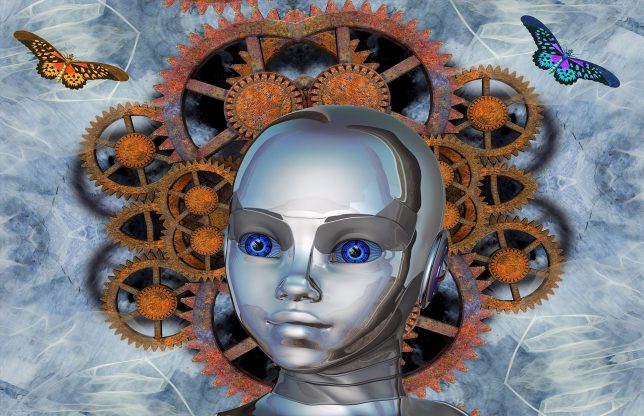
Artificial intelligence (AI) is a hot topic today and often includes dire predictions of job loss. AI is “the ability of a digital computer or computer-controlled robot to perform tasks commonly associated with intelligent beings.” Martin Ford, author of Rise of the Robots: Technology and the Threat of a Jobless Future, opens his article in Wired by saying: “The robots haven’t just landed in the workplace—they’re expanding skills, moving up the corporate ladder, showing awesome productivity and retention rates, and increasingly shoving aside their human counterparts.”
Recent research looking at AI in the Canadian workplace offers a less drastic perspective. Toronto-based Brookfield Institute for Innovation + Entrepreneurship (BII+E) published The Talented Mr. Robot: The Impact of Automation on Canada’s Workforce in 2016.* Over the next 10-20 years, BII+E predicts that 42 percent of the Canadian work force will be at high risk (70-100 percent probability) of being affected by automation. The prediction for low risk of being affected by automation is 36 percent (0-29 percent probability).
The top five occupations at high risk of automation include:
Retail sales persons
Administrative assistants
Food counter attendants and kitchen helpers
Cashiers
Transport truck drivers
The top five occupations at low risk of automation include:
Retail and wholesale trade managers
Registered nurses
Elementary and kindergarten teachers
Early childhood educators and assistants
Secondary school teachers
Workers in the low risk of automation category earn higher salaries, have higher levels of education and are aged 25-54 years. The high risk category includes lower salaries and education levels and workers aged 15-24 years.
Another BII+E report published in 2017 indicates that thinking and knowledge will be increasingly important going forward. Two thirds of job openings in Canada in the coming decade will be in occupations requiring post-secondary education or will be managerial roles.** Even more concerning, according to BII+E, “Canada’s youth will require a diverse set of technical and soft skills, including creativity, problem solving, social intelligence as well as entrepreneurial abilities, such as managing uncertainty and taking risks in order to compete in the workplaces of the future.”** Youth continue to face the “experience mismatch”—“despite educational achievements, they lack the appropriate experience to integrate into the labour market.”** The “experience mismatch” is the circular no job, no experience, no experience no job conundrum that has plagued new workers for decades.
Ever-higher expectations of soft skills and entrepreneurial perspective mean that young workers must take initiative in personal development as well as technical skills expected for specific jobs. BII+E’s report states, “When asked if youth are adequately prepared for the workforce, 83 percent of education providers said yes while only 44 percent of youth and 34 percent of employers felt the same way.”**
The workplace of the future demands increasing levels of independent thinking, knowledge and wisdom from workers of all ages and especially from new, inexperienced workers. Young workers must strive for improved understanding of how employment trends will impact work. Employment strategies of the past no longer suffice. Workers cannot count on loyalty from an employer, even if that employer would like to offer loyalty.
Wrestling with robots—adapting to artificial intelligence—is critical to our future. As employers adopt AI, workers must be prepared to move to other roles or possibly, find new employment. This need for adaptability applies to workers of all ages. Success today requires learning about ways that AI is affecting your field and developing your thinking skills, knowledge and wisdom to enable you to compete with the robot.
* Creig Lamb. The Talented Mr. Robot: The Impact of Automation on Canada’s Workforce. Toronto: The Brookfield Institute for Innovation + Entrepreneurship (BII+E), 2016.
** Creig Lamb and Sarah Doyle. Future-proof: Preparing Young Canadians for the Future of Work. Toronto: The Brookfield Institute for Innovation + Entrepreneurship (BII+E), 2017.